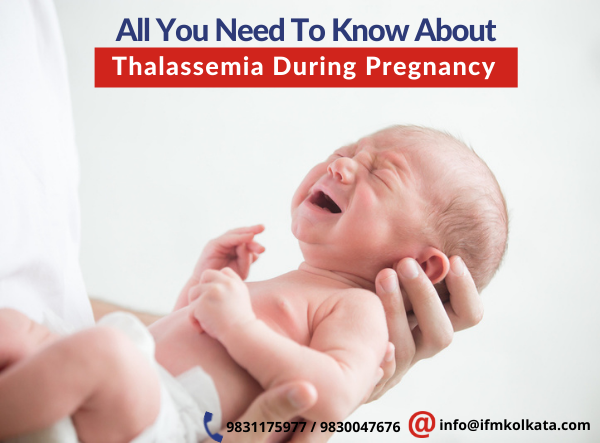Most expectant mothers with Thalassemia traits have very little knowledge about the condition during pregnancy and the tests they have to undertake after they have conceived a child. So, the first thing you have to do is get your partner screened if you have Thalassemia. It will help you determine whether there is a chance for the condition to pass onto your child.
What Do You Mean By Thalassemia? How Is It Caused?
It is a hereditary condition that prevents our body from producing adequate haemoglobin, responsible for carrying oxygen through our bloodstream. Haemoglobin is a protein present in red blood cells and comprises four protein subunits. More than 9000 children are born with Beta Thalassemia every year, making it one of India’s most common single-gene disorders. If you don’t want your child to be the next, visit the Institute of Fetal Medicine for Thalassemia Test in Kolkata.
How To Test For Thalassemia During Pregnancy?
You and your partner can get screened for Thalassemia both before and after conceiving a baby. Two common tests are the High-Performance Liquid Chromatography and Hemoglobin electrophoresis test. In addition, the doctor will conduct a blood test known as Complete Blood Count to track the presence of the Thalassemia trait in one’s body, the number of red blood cells and haemoglobin concentration.
What Does The Test Result Indicate?
Did you and your partner undergo the test before your pregnancy, and the test result showed that both of you are a silent carrier of Thalassemia? There is a 50% chance that your baby will become a carrier, there is a 25% chance that both of you being Thalassemia carrier won’t impact him and a 25% chance that your child will get the inherited blood disorder.
Do You Have To Worry About Thalassemia During Pregnancy?
Thalassemia is harmful to the unborn child during pregnancy if you fail to detect it at the right time. Expectant mothers should visit the Institute of Fetal Medicine for antenatal checkups at fixed intervals so doctors can closely monitor their health. Some doctors consider pregnancy with Thalassemia as a high-risk pregnancy.
The expectant mother can develop anaemia during her pregnancy if she only carries the traits. Proper management is necessary to prevent the condition from becoming severe. Prenatal testing will be necessary if both the parents have the trait. The test is done before the mother crosses her 12th-week pregnancy and helps in determining whether the baby will be born with Thalassemia Major.
What Is Beta-Thalassemia Major?
It is a severe condition when the child inherits one faulty gene from each parent. The number of healthy red blood cells in their body might be less than required. It makes them incapable of supplying sufficient oxygen through their body and causes life-threatening anaemia.
Conduct a Thalassemia test at the right time and you can decide whether you want to continue with the pregnancy or not.

